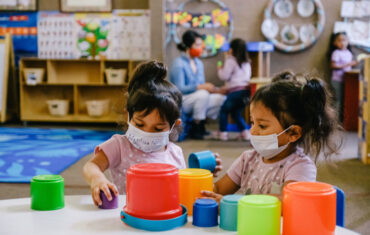During coronavirus, officials are advising households to create a plan for how they would protect the health of themselves and their family. In the event you would need to self-quarantine or avoid going out in public to lower your risk of getting sick. Then, there are items that you should consider keeping on hand. Then, vulnerable individuals are encouraged to stay home and stock up on Covid 19 supplies in case of a potential outbreak.
Following items to prepare for several weeks:
- Food: Buy shelf-stable foods that are easy to prepare, like dry and canned goods and frozen fruits and vegetables. This can also include beans, peanut butter, granola, dried fruit, pasta, tuna and oats. Aim for at least 14 days of food for each member of the household – and don’t forget your pets.
- Medications: Check prescriptions to ensure you have at least a 30-day supply. Also, stock up on over-the-counter pain relievers and remedies like Aspirin, vitamins, electrolytes and cold and flu medicines.
- First–Aid Kit: Aside from medications in Covid 19 supplies, every home should have a first-aid kit to treat small injuries. It should include band aids, gauze, ointment, antiseptic wipes, a cold compress, a thermometer, tweezers and an emergency blanket.
- Cleaning Supplies: Your home should be cleaned and disinfected regularly. In addition to household Covid 19 supplies like rubber gloves, laundry detergent, dishwashing liquid and garbage bags, you’ll need disinfectants to clean household surfaces. The U.S. Environmental Protection Agency has a list of commercial cleaning products that qualify for use against the new coronavirus.
- Personal Hygiene Items: Have basic toiletries like soap, toothpaste, toothbrush, feminine supplies, toilet paper and paper towel. If you have small children, purchase additional diapers and wipes.
- Make a plan
In addition to gathering essential supplies, develop a game plan with your family, friends, and neighbors.
The CDC has a summary of guidelines to help you and your community prepare for an outbreak.
- Discuss the needs of each person and who can best help meet those needs.
- Decide how you’ll take care of someone at higher risk such as older adults and those with underlying chronic medical conditions.
- Create a list of aid organizations in your community in case you need food, counseling services, or other Covid 19 supplies.
- Put together an emergency contact list with names and phone numbers.
- Determine which room in the house you will use to quarantine yourself or someone you live with if you get COVID-19.
- Continue to practice good hygiene such as washing your hands frequently, cleaning high-touch surfaces. And you need to stay home if you’re sick, unless you need medical care.
- Cough or sneeze into a tissue.
- Take care of your mental health by turning off the news once in a while and connecting with family and friends by phone or video chat.
It’s a stressful time for all, but a little planning can go a long way to put your mind at ease. Moreover, the CDC recommends that people wear face masks in public settings where social distancing are difficult to maintain. Especially in areas of significant community-based transmission. Other preventive measures include regular handwashing and covering your cough when sick.






